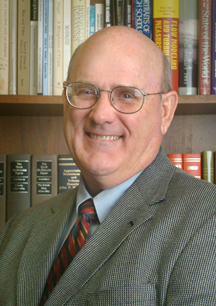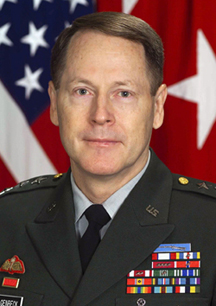
One of the nation’s longest-serving provosts, the superintendent of the U.S. Military Academy at West Point, and a world leader in the biology of ticks and mites are but three of the distinguished individuals who were during The Florida State University Alumni Association’s annual Homecoming Awards Breakfast Nov. 6.
Among the honors and honorees featured at the 2010 Homecoming Awards Breakfast:
FSU Alumni Association’s Bernard F. Sliger Award
Named for Florida State’s 10th president, the Bernard F. Sliger Award is the highest honor bestowed by the Alumni Association. The award recognizes a member of the university community who has made a major contribution to the fulfillment of FSU’s mission. This year’s recipient:
Lawrence G. “Larry” Abele (B.S. ’68 and M.S. ’70, Biology), who received the Bernard F. Sliger Award because of his distinguished service since November 1994 as The Florida State University’s provost and executive vice president for Academic Affairs.
Abele, who is among the longest-serving provosts and academic vice presidents in the United States and has the longest tenure among provosts in the State University System of Florida, is stepping down from the post at the end of the fall semester. He plans to devote his full attention to the Institute for Academic Leadership, a statewide program for new academic administrators.

“Larry Abele’s tireless work on behalf of his alma mater has been a true inspiration,” Scott Atwell, president of the Alumni Association, said. “As he nears retirement, it’s only fitting for the FSU Alumni Association to honor Dr. Abele with its most prestigious award.”
A marine biologist, Abele earned his doctorate in biological oceanography from the Rosenstiel School of Marine and Atmospheric Science at the University of Miami in 1972. As a faculty member and administrator at Florida State, Abele served as chairman of the Department of Biological Science from 1983 to 1991, then as the dean of the College of Arts and Sciences from 1991 to 1994.
In addition to being recognized as an outstanding teacher, Abele has received more than $1.25 million in research funding. His primary research interests include the biology of crustaceans (crabs and shrimps), and since 1987 he has been working on the molecular evolution of this group.
Circle of Omicron Delta Kappa (ODK) “Grads Made Good”
The Grad Made Good Award, chosen by FSU’s Circle of ODK National Leadership Honor Society, is bestowed upon Florida State alumni who have achieved outstanding success in their fields at the national or international level. For 2010, two alumni have been chosen; they are:
Lt. Gen. Franklin L. Hagenbeck (M.S. ’78, Exercise Physiology) is serving as the 57th superintendent of the U.S. Military Academy at West Point, N.Y., a post he assumed in June 2006.

“It is an enviable honor to be selected as superintendent at West Point, and only the finest leaders with impeccable credentials and records of service are considered for the position,” said John Fogarty, dean of Florida State’s College of Medicine, who was a classmate of Hagenbeck’s during their days at West Point. “It is a highly visible and prestigious post, overseeing the future of the military academy and the Army’s future leaders.”
Hagenbeck has served in the 25th Infantry Division, the 10th Mountain Division, the 101st and 82nd Airborne Divisions, and in the Army Training and Doctrine Command (TRADOC). He has commanded at every level from company through division, up to the commanding general of the 10th Mountain Division.
Before becoming superintendent, Hagenbeck served as the Army’s deputy chief of staff, G-1, and in numerous staff positions, including as chief of staff for the 10th Mountain Division; the director of the Officer Personnel Management Directorate for the U.S. Total Army Personnel Command; and as the assistant division commander (Operations) for the 101st Airborne Division.
James H. Oliver Jr. (M.S. ’54, Zoology), the director of the James H. Oliver Jr. Institute of Arthropodology and Parasitology, and the Fuller E. Callaway Professor of Biology Emeritus, both at Georgia Southern University in Statesboro, Ga., is an international expert in the biology of ticks and mites, especially those that cause or transmit diseases.
In fact, Oliver is the best-known western medical entomologist among the Japanese scientific community because of numerous presentations he has made to Japanese scientific societies, according to Professor Kozo Fujisaki of the department of frontier veterinary medicine at Japan’s Kagoshima University.
Oliver began working at Georgia Southern in 1969. Since then, he has made the university one of a few in the world to focus on tick-borne diseases.
“The fact that Dr. Oliver’s research has been funded consistently since the 1960s by such prestigious agencies as the National Science Foundation, the National Institutes of Allergy and Infectious Diseases, the Office of Naval Research and the U.S. Agency for International Development further attests to his research accomplishments, productivity and the high regard with which his peers hold him,” said Robert S. Lane, professor emeritus of the department of environmental science, policy and management at the University of California, Berkeley.
Over his career, Oliver supervised the research of 29 master’s students, nine doctoral students and 27 postdoctoral students and, in so doing, “contributed mightily” to the development of young scholars, according to Bruce Gabe, president emeritus of Georgia Southern.
Garnet and Gold Key’s Ross Oglesby Award recipient
Garnet and Gold Key, a student-run leadership honor society, also selected Provost Lawrence G. “Larry” Abele for its Ross Oglesby Award. Each year, members select their Ross Oglesby Award winner from among nominated faculty or staff members with 10 or more years of exemplary service to students and the university.




